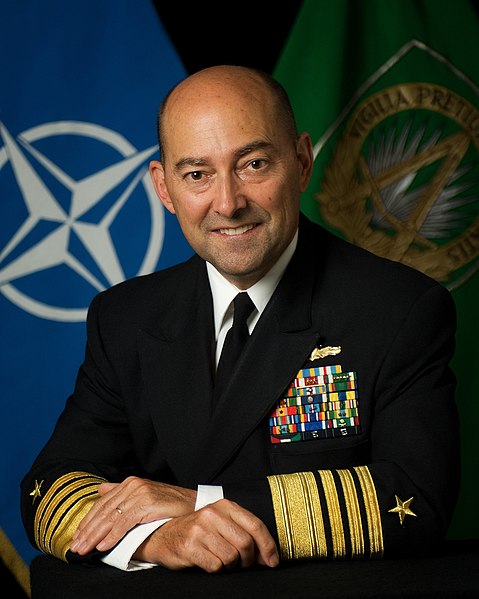
Event Recap: Unpacking the 2022 NATO Summit – A Conversation with Admiral James Stavridis
On Friday, July 1, 2022, the American Security Project hosted a virtual event, “Unpacking the 2022 NATO Summit – A Conversation with Admiral James Stavridis.” Admiral James G. Stavridis, USN (Ret.), former NATO Supreme Allied Commander, shared his analysis of the NATO Summit in Madrid, the new NATO Strategic Concept, NATO enlargement, and challenges to the Alliance.
The conversation opened with Stavridis discussing different time periods and operations in NATO’s history. NATO 1.0 formed during the Cold War to deter the threat posed by the Soviet Union and Warsaw pact countries. NATO 2.0 defined by “out of area” missions and highly influenced by 9/11, and so its operational parameters expanded. Russia was viewed as a potential partner. However, this period of NATO was shattered by Russia’s 2014 invasion of Crimea and its most recent invasion of Ukraine. NATO 3.0 has since been defined by dramatically increased defense budgets, and the process of adding Sweden and Finland, which will reshape the alliance.
Admiral Stavridis then explained the common misconception many Americans have of Russia’s military capabilities. The reality is Russia’s ability to challenge NATO falls extremely short; for perspective, NATO has 3 million active-duty troops and an additional 4 million in reserve while Russia only has about 400,000 “capable” military personnel. Admiral Stavridis also clarified accusations against NATO being at fault for provoking Russia to invade Ukraine as it continues to expand to the East. He countered these claims by pointing out the number of times Russia has attempted to expand west while emphasizing NATO as a defensive alliance with no offensive eastward attacks. The conversation shifted to the potential drawbacks and benefits of Sweden and Finland joining NATO. Admiral Stavridis was confident that there is no risk of weakening NATO’s deterrence with Finland and Sweden’s ascension. He explained both countries are techno-democracies that produce high end military technology and have high quality troops that can be of great benefit to NATO.
The discussion turned to China as a principal challenge to NATO’s security. Admiral Stavridis argued for China to be viewed as a strategic competitor rather than classifying China as strategic threat. Labeling China the same as Russia would only push the two countries closer when it is preferable to seek division between them. Admiral Stavridis believes the biggest concern in the Pacific is China’s territorial claims in the South China Sea, which could potentially shift the balance of power in the region. Climate change was also discussed as it threatens NATO’s operations in several domains, particularly noting the threats posed by rising sea levels and their effects on key coastal cities such as Norfolk, Virginia, home to the world’s largest naval base and a NATO operational headquarters.
The conversation closed with the uncertain future NATO will face as it is strategically challenged by Russia and China. Admiral Stavridis referenced Halford Mackinder—a geopolitical strategist- who stressed the importance of controlling “the world island” which refers to the Afro-Eurasian continents. Russia and China currently control the “world island,” but Admiral James Stavridis drew attention to Alfred Thayer Mahan’s theory that instead focuses on sea power and its role in challenging the land powers. Admiral Stavridis hopes NATO can prove Mackinder wrong and Mahan correct.





